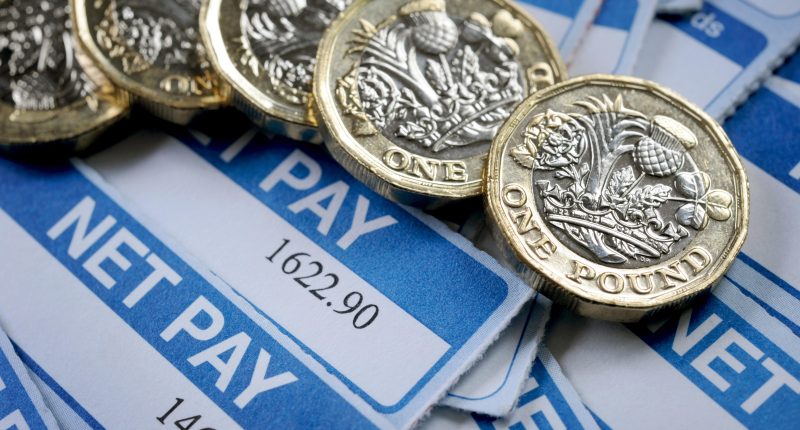A UNIVERSITY degree isn’t everything when it comes to landing a successful job – one “winning” pathway could see you earn £50k a year.
Advances in tech and robotics can make it seem as if manual labour jobs are becoming redundant, but one career is still worth a bet on.
Ricky Sharma, director of Engineering Real Results, which specialises in training courses for practical jobs, said electricians can earn tens of thousands of pounds a year without entering into higher education.
Someone in the role will earn an average salary of £33,636, but this can rise to between £45k to £50k depending on where you’re based and demand in the local area.
Not only that, but the average salary for electricians rose by 3.4% from 2021 to 2022, according to the Office for National Statistics.
It is also the highest-paying trade when compared to plumbing, carpentry and painting.
Read more in Money
Ricky said: “There’s no doubt in my mind that if I was changing careers right now, I would be looking at the electrical industry.
“As the UK continues its drive towards carbon reduction and as technological advances such as robotics and AI become more influential, it’s a great career in terms of developing future-proof skills and experience.
“Meanwhile, every existing home in the country is still dependent on electricians for installations and repairs, as well as up to 300,000 new builds that also need work done.
“It’s winning in all directions.”
Most read in Money
How to become an electrician
Becoming an electrician can take a few weeks to several years, depending on what level you want to reach.
The two main avenues are via apprenticeships or a college course.
There are two types of apprenticeships you can sign up for, depending on what kind of electrician you want to be:
- Level 3 domestic electrician: involves installing systems and fixing faults in people’s homes
- Level 3 installation and maintenance electrician: involves installing systems and fixing faults in homes, businesses and construction sites
These two pathways last up to four years and starting salaries are around £20,000 a year, before rising after fully qualifying.
Generally, with an apprenticeship, you’ll study on average one day a week too.
One major advantage to an apprenticeship is you’re effectively being paid to learn on the job before branching out and potentially setting up your own business.
Meanwhile, there are no upper age limits to sign up for one, so you can come to it later in life.
You can find and apply for apprenticeships on the Government’s website.
The course route means you can lock in a qualification sooner but you have to cover the costs yourself, unless you are 16-18 and classed as a full-time learner.
There are dozens of courses to choose from on the National Career Service’s website.
Prices range from a few hundred pounds to thousands of pounds, will mostly be classroom-based and generally last between a few months to a year.
Some classes are held during the day and others in the evening, offering more flexibility to full-time workers.
Ricky said both of these options can help you on the path to becoming an electrician.
“You’ll study the technical knowledge and develop the practical skills needed to pass the NVQ to be a qualified electrician,” he said.
However, there is a third and even faster route – qualifying as a domestic electrical installer.
Do this and you’ll be able to carry out residential jobs ranging from installing light features to rewiring houses.
You can sign up for a course to become a domestic electrical installer online.
They cost anywhere from a few hundred pounds to thousands of pounds.
But, in most cases, the courses are less than a month long.
One disadvantage to this type of qualification is it’s not compulsory to do on-the-job training.
This means you can end up under-qualified to carry out more complex electrical tasks.
What it involves and how to progress
A typical day as an electrician varies depending on what your specific role is, whether that be domestic or industrial.
But there are a few core jobs which will often crop up, Ricky said.
“These include checking electrical systems to make sure they’re safe, repairing components and fitting wires, sockets and switches.
“You could also find yourself installing solar panels, electric vehicle chargers or even street lights and traffic lights.”
When it comes to how much you can earn, starting salaries vary depending on where you are based and how much you work.
Ricky explained: “A trainee can earn anything from £18,000 upwards when starting out, but this can be as much as £30,000 in London, for example.
“After two or three years, you would expect to be earning more as you become more experienced, and that’s when you could start to find yourself at around £45,000 or £50,000.”
In the future, electricians’ roles will diversify, and that’s why it’s good to get into the profession now.
The job will have a greater focus on renewable energy which could include installing and repairing electric car charging units and connecting smart homes.
Ricky added: “There’s so many elements to the career and it will only continue to grow in demand that it’s basically a trade for life.
READ MORE SUN STORIES
“So you don’t have to live in fear of ChatGPT or robotics making you redundant.
“And the shortage of qualified tradespeople makes it guaranteed work, so if you’re a self-employed business you can earn as much as you want.”
Do you have a money problem that needs sorting? Get in touch by emailing [email protected].
You can also join our new Sun Money Facebook group to share stories and tips and engage with the consumer team and other group members.










